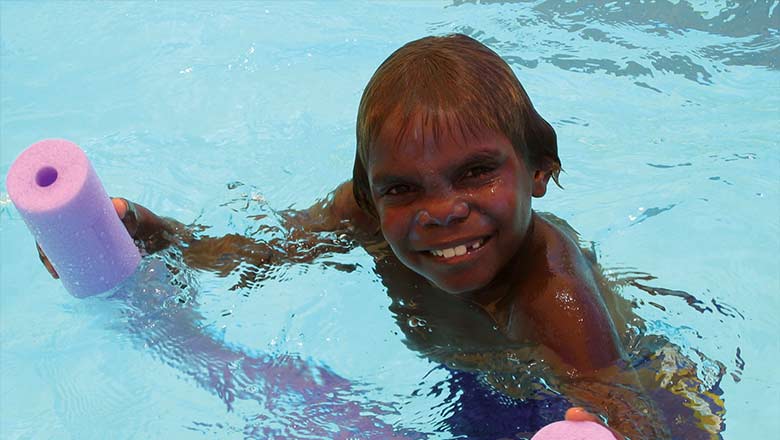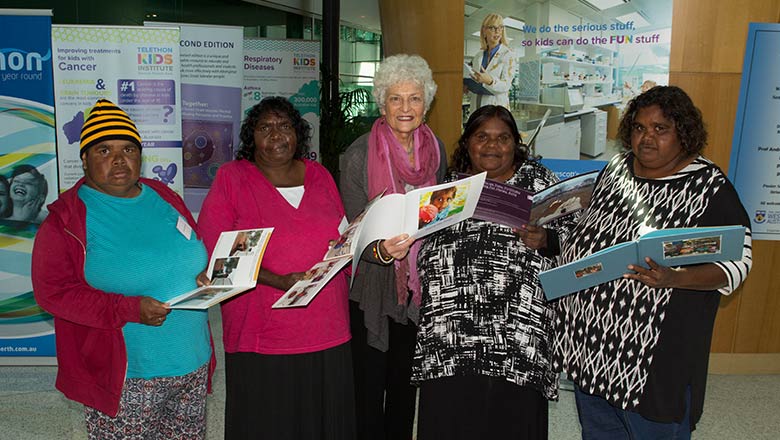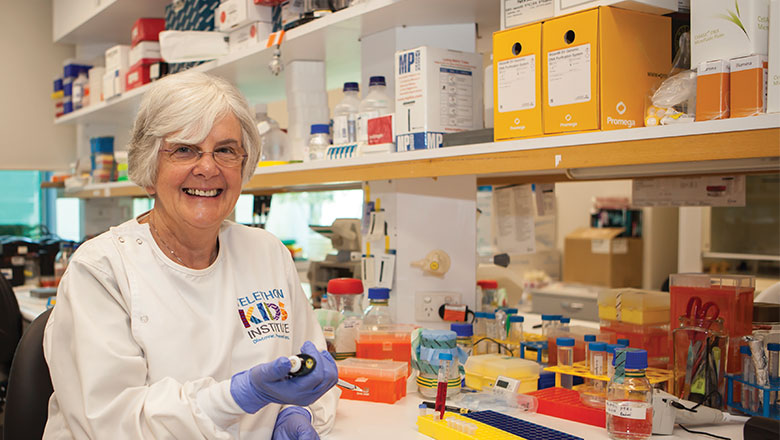Search

News & Events
Remote pools boost Aboriginal child healthA comprehensive study into the impact of swimming pools in remote Aboriginal communities has found significant health and social benefits for children.
News & Events
Aboriginal researcher receives Fiona Stanley MedalAboriginal researcher Annette Stokes has been awarded the Fiona Stanley Medal for her commitment to improving child health and wellbeing.

News & Events
The Kids researcher named WA Youth Awards finalist25 year old Noongar woman Tiana Culbong, a The Kids Research Institute Australia researcher, has been named as a finalist in the WA Youth Awards.

News & Events
New project to make FASD history in the PilbaraA new project aimed at reducing Fetal Alcohol Spectrum Disorder (FASD) in the Pilbara has been launched today in South Hedland.

News & Events
Boosting literacy in Aboriginal kidsAn NHMRC grant to develop a program to improve school outcomes in the Ngaanyatjarra lands has helped create books reflecting Aboriginal experiences.

News & Events
A new approach for research with Aboriginal communitiesWinning the support of a remote Aboriginal community paved the way for a pioneering genetics study.

News & Events
Homes crucial for healthy earsThe Kids researchers discovered that overcrowding is the strongest predictor of carriage of bacteria that cause otitis media
Research
A psychometric evaluation of the Connor–Davidson Resilience Scale for Australian Aboriginal youthThere is a paucity of quantitative measures of resilience specifically validated for young Aboriginal people in Australia. We undertook the first investigation of validity and reliability of the Connor-Davidson Resilience Scale in a sample of Australian Aboriginal people, with a focus on youth. We conducted a cross-sectional study of resilience among a sample of 122 Aboriginal youth (15–25 years old) in New South Wales and Western Australia, featuring self-completes of the 10-item CD-RISC in online (N = 22) and face-to-face (N = 100) settings.
Research
Redressing ‘unwinnable battles’: Towards institutional justice capital in Australian child protectionAustralia’s history of negative child protection outcomes for children in state care highlights the sustained, systemic nature of serious harm. Situated in emerging conversations on structural challenges and state violence for parents involved in child protection systems, we trace the resources and barriers to responsive and ‘just’ child protection practice, highlighting how institutions can serve to compound disadvantage and injustice. We argue that addressing challenges such as access to advocacy at the level of the individual is to miss the underlying politics of oppression that serves to keep families marginalised.
Research
"This is my boy's health! Talk straight to me!" perspectives on accessible and culturally safe care among Aboriginal and Torres Strait Islander patients of clinical genetics servicesAboriginal and Torres Strait Islander people do not enjoy equal access to specialist health services that adequately meet their needs. Clinical genetics services are at the vanguard of realising the health benefits of genomic medicine. As the field continues to expand in clinical utility and implementation, it is critical that Aboriginal and Torres Strait Islander people are able to participate and benefit equally to avoid further widening of the existing health gap. This is the first study to explore barriers to accessing clinical genetics services among Aboriginal and Torres Strait Islander people, which has been acknowledged as a key strategic priority in Australian genomic health policy.
